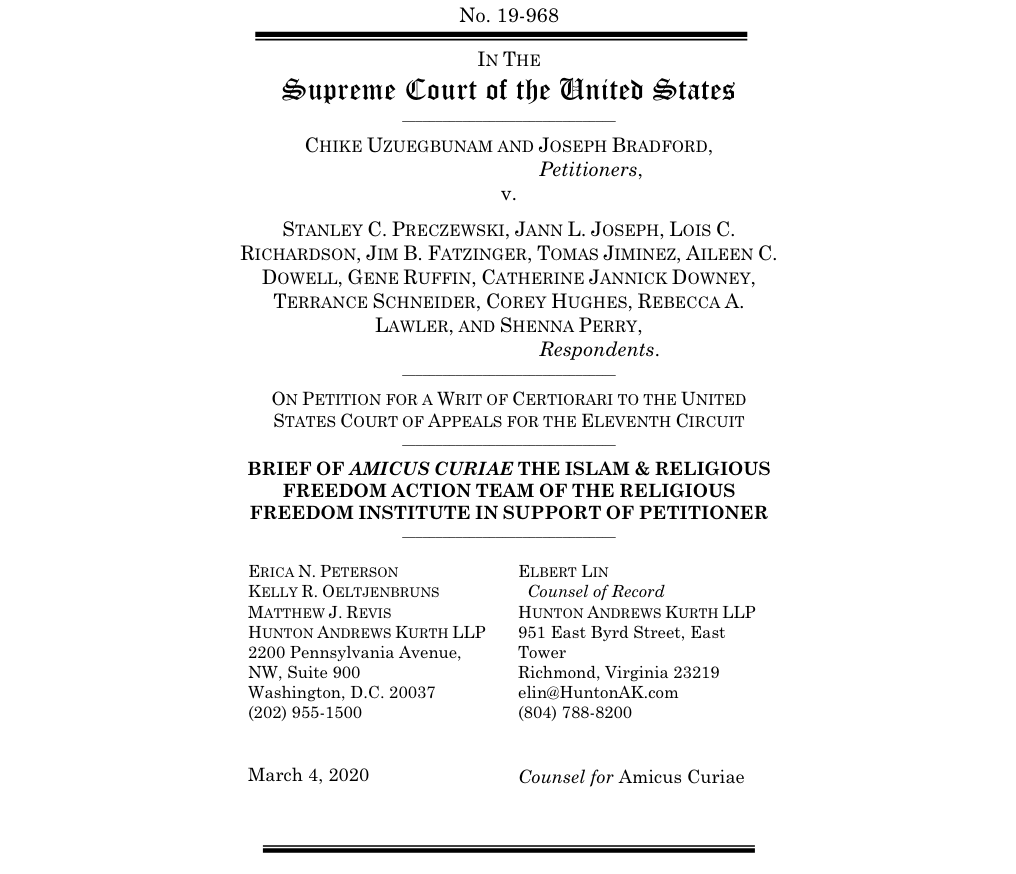Georgia Gwinnett College, a member of Georgia’s university system, had until recently a very strict policy regulating speech by students. In 2016, it disciplined one of its students, Chike Uzuegbunam, for speaking on campus to other students about his Christian faith. Uzuegbunam, the son of Nigerian immigrants, sued the college in federal court, alleging that it had violated his constitutional rights.
In court, Georgia Gwinnett College defended its policy, but in the middle of the case, in a clever litigation tactic, it shifted gears and abandoned it. Under the unique precedent of the federal Eleventh Judicial Circuit, which includes Georgia, when the government (in this case, a school within Georgia’s university system) is sued for a constitutional violation, courts must dismiss lawsuits if the government has changed its unconstitutional policy and the plaintiff has not suffered any monetary damages. Because Uzeuegbnam had graduated and had not lost any money as a result of the college’s actions, the trial court, bound by circuit precedent, dismissed his lawsuit. The Eleventh Circuit Court of Appeals affirmed the dismissal.
In January of this year, Uzuegbunam, represented by the Alliance Defending Freedom, asked the Supreme Court to review his case. As the director of the Islam and Religious Freedom Action Team at the Religious Freedom Institute, I worked with pro bono attorneys to file a friend-of-the-court brief in the Supreme Court supporting Uzuegbunam’s petition for review. In July, the Court granted that petition and agreed to hear the case.
Last month, we filed another brief in support of Uzuegbunam, joining other Muslims, Jews, Christians, and even atheists in asking the Court to reinstate his lawsuit and, in the process, overturn the Eleventh Circuit’s precedent holding that the government cannot be sued for constitutional violations that caused no money damages.
Why would I, a Muslim, support a Christian who was punished for sharing his faith? It is true, of course, that it is in the interest of Muslims that the government remain subject to judicial scrutiny for past violations, even if the offending policy or practice is no longer in place. Indeed, if a member of the dominant faith in America is punished, in Georgia of all places, for practicing his faith, then Muslims are certainly vulnerable to such unconstitutional government action as well.
But we also supported Uzuegbunam because everyone, not just Muslims, benefits when courts are able to fulfill their role of holding the government accountable to the Constitution. And the first good the Constitution protects is religion, because, as its authors knew, religion is good for society: it contributes indispensably to the flourishing of the American people. While we may disagree with one another on the means to salvation, we can and must agree to protect one another’s right to search for religious truth in this life and to act in accord with that truth when we find it.
THE RFI BLOG

Is Egypt’s Government Trying To Take Over Christianity’s Most Important Monastery?

Does Southeast Asia Lead the World in Human Flourishing?

RFI Leads Training Session on Religious Freedom Law and Policy for U.S. Army War College

Oral Argument in Charter School Case Highlights Unconstitutional Motives Behind OK Attorney General’s Establishment Clause Claim

Largest Longitudinal Study of Human Flourishing Ever Shows Religion’s Importance
CORNERSTONE FORUM

Reaffirming Religious Freedom: Bridging U.S. Advocacy and Iraq’s Constitutional Framework

Political Polarization, Same-Sex Marriage and Religious Liberty

Bridging the Gap Between International Efforts and Local Realities: Advancing Religious Freedom in the MENA Region

Challenges to Religious Freedom in Iraq and the Critical Need for Action


